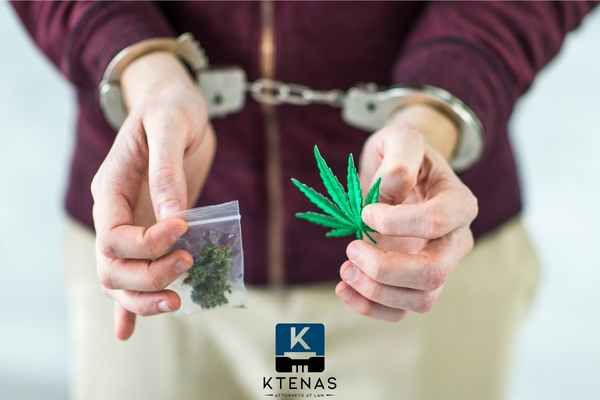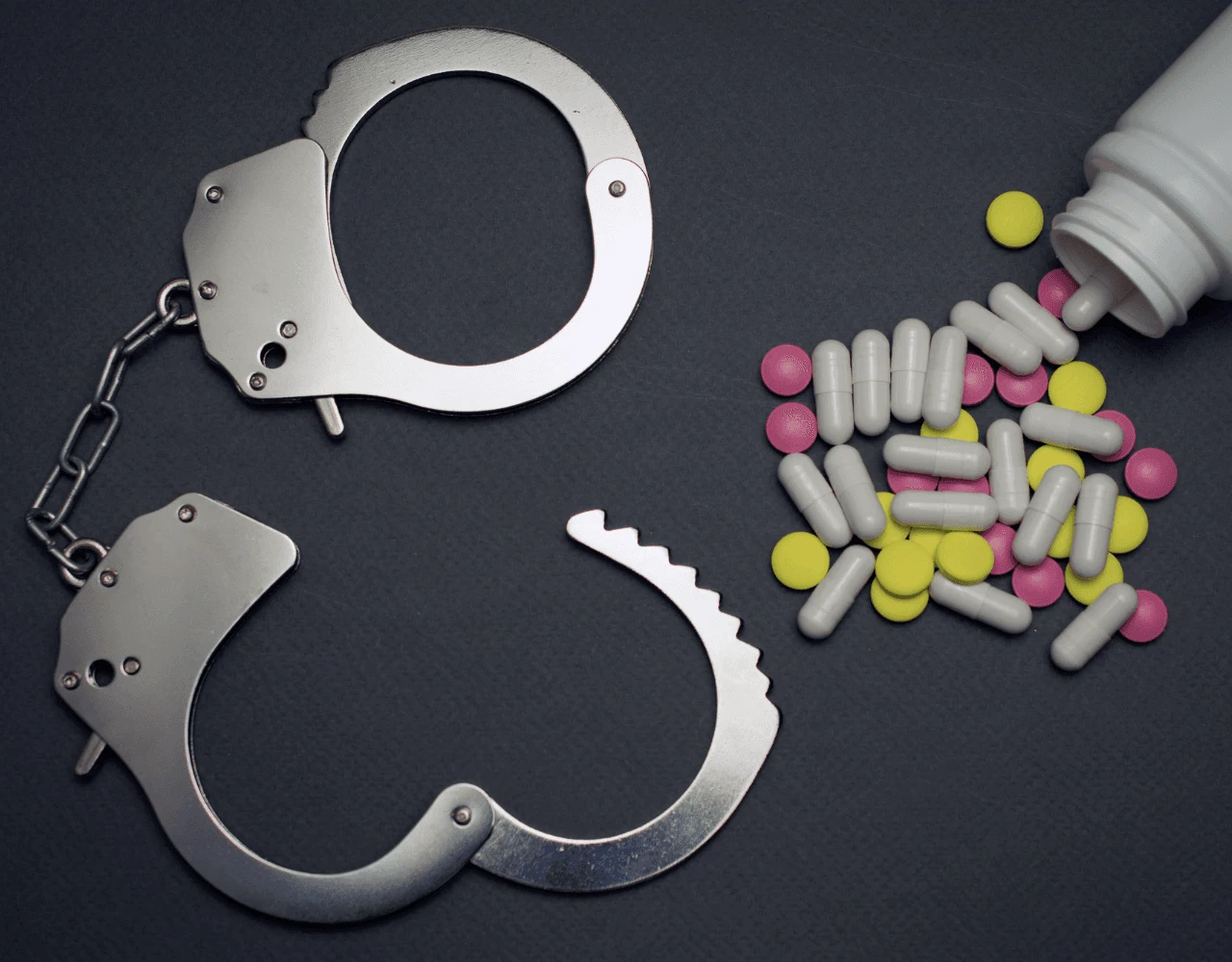Alternative Sentencing Options for Drug Charges in Chicago
2025-04-23T13:15:00
Have you ever wondered why possession of cannabis in Chicago carries such severe consequences? Despite its legalization for recreational use in several states and its increasing acceptance for medical use (“Medical Marijuana Use”), possessing cannabis in the Windy City can still land you a felony charge.
Well, it all goes back to the city’s controversial history with cannabis. In the early 1900s, Chicago saw a rise in cannabis use among immigrant communities and African Americans. This led to an increase in arrests and imprisonment for possession, particularly among these marginalized groups.

Fast forward to today, and the impact of this history is still being felt. Despite Illinois’ legalization of recreational cannabis in 2019, Chicago continues to have some of the strictest possession laws in the state. If you have been charged with possession of marijuana contact our Chicago criminal defense lawyers today to learn how we can help.
Possession of marijuana, an “illicit drug,” is one of the criminal offenses in Illinois, and it carries varying punishments depending on the quantity of cannabis in one’s possession. The cannabis industry in Illinois is regulated by the Cannabis Regulation and Tax Act (CRTA), which sets limits on possession for both medical and recreational users.
According to Illinois state law, possession of up to 10 grams of marijuana is only a civil offense, punishable by a fine of up to $1,500 and/or jail time not exceeding 30 days. However, Chicago’s municipal code dictates that possession of 30 grams of marijuana or less is a violation punishable by a fine of anywhere from $1500 to $2500 and/or possible jail time of not more than 1 year, which is the case for first-time offenders. As a subsequent offense, it would constitute a felony punishable by a fine of $25,000 and/or a term of imprisonment of between 1 and 3 years.
Possession of more than 30 grams of marijuana can result in a felony charge, with the penalties increasing based on the amount of marijuana you possess. For example, possession of between 30 and 500 grams of marijuana can result in a 1-3 year term of imprisonment and a fine of up to $25,000. Also, possession of between 500-2000 grams can result in 2-5 years in prison and a fine of up to $25,000.

Possession of 2000-5000 grams or amounts of marijuana can result in a 3-7 year term in prison and a fine of up to $25,000. At the same time, anything over 5000 grams can result in a 4 –15 year prison sentence and a fine of up to $25,000.
Similarly, if you are caught selling or delivering cannabis without a license, it will also result in a felony offense with increased penalties. Although this does not constitute a Class X felony (the most serious of felonies), it can still result in a prison sentence or fine.
It’s important to note that these penalties can vary based on the specific circumstances of the offense and the judge’s discretion. For example, the penalty may be increased if possession occurs in a school zone or public park. This means that Chicago’s municipal code also states that possession within 1000 feet of a school (cannabis on school grounds) or park can result in double penalties.
You must understand that possession of cannabis paraphernalia, such as pipes or bongs, can also result in fines and a possible term of imprisonment, although a minor cannabis offense. To illustrate, you could be fined $750 and face up to 6 months in jail for possessing drug paraphernalia with the intent to use cannabis.
In general, anything less than 30 grams is considered a small amount, and the penalties listed above would apply. Possession of between 30-500 grams can result in 1-3 years in prison and a fine of up to $25,000. More than 500 grams will constitute a violation punishable by 4-15 years in prison and a fine of up to $25,000.
To properly evaluate the amount possessed, it’s important to note that 1 gram equals 1 cannabis joint, or 1/5 of a gram equals 1 cannabis cigarette. Possession of six cannabis joints or cigarettes could result in a felony charge. Consequently, it’s important to know and understand local possession laws and limits to avoid potential legal issues such as having a criminal history in the delivery of cannabis.
To legally possess cannabis, you must be 21 years of age or older and have a valid government-issued ID. Also, you can only buy cannabis from licensed dispensaries, and you can only buy a total of 30 grams at a time. Consumption of cannabis is also limited to private spaces, except in ones with an on-premises license. However, consuming cannabis in public places, including parks and streets, is illegal.
If an individual is caught with cannabis and it is believed that they were intent on distributing or selling the substance “Delivery of Cannabis”, they can face even harsher penalties.
It is worth mentioning that a person’s prior criminal record can also play a role in their penalties for possession of cannabis. For example, if a person has been convicted of drug possession or possession with the intent to sell in the past, their punishments could get worse. In other words, a first-time offender caught with 30 grams or less could face a fine and possible jail time, whereas a repeat offender could face felony charges and a maximum term of 3 years in prison.
Cannabis trafficking or illegally transporting cannabis across state lines is a federal offense and can attract penalties. These penalties can be different depending on how much was being moved and whether it was for personal use or to sell. Arrest with marijuana alone may constitute a felony violation that could attract penalties, including the minimum sentence.
If an individual is caught transporting cannabis from Illinois to another state where it is not legal, they could face federal charges. The practice has always been that federal law supersedes state laws. However, with the recent legalization of cannabis in multiple states and shifts in federal policies, it is a constantly evolving area.

It’s important to note that there are also laws governing the legal purchase and transportation of cannabis within Illinois. For example, an individual can only purchase up to 30 grams at a time from a licensed dispensary and can only transport it in a sealed, labeled container.
Evidence that cannabis is made from the cannabis plant (“Cannabis Sativa Plant”) is generally enough to prove intent to distribute. Additionally, large quantities or the presence of additional drug paraphernalia, such as scales or baggies, can also signal intent to distribute.
By emphasis, in the cannabis industry, cannabis trafficking is not a civil law violation. It is instead a federal crime, with stricter penalties that carry a minimum jail term or maximum sentence depending on the applicable term imposed.
Understanding and adhering to these laws can help individuals avoid facing possession charges in the first place. Overall, it is crucial to be aware of Chicago’s strict laws regarding marijuana possession. But ultimately, it’s best to adhere to the laws in place to avoid any potential penalties, mainly due to an arrest for marijuana.
If you or someone you know is facing charges related to marijuana possession, it is crucial to speak with a drug defense attorney who can provide guidance and advocate on your behalf. They can protect your rights and fight the charges or negotiate a reduction in penalties. Getting through the legal system can be a lot easier if you know what your rights are and what choices you have.
At Ktenas Law, we are dedicated to protecting the rights of our clients through diligent and strategic defense. With many years of experience on both sides of the law, in and out of court, we know what works best for various cases.
We understand the tactics used by local law enforcement, how to handle evidence, how to negotiate the best possible outcome for our clients, and which strategies will be most effective. Contact our team today for your free consultation and excellent legal representation.

2025-04-23T13:15:00

2025-04-07T11:50:40

2025-03-24T11:55:03

